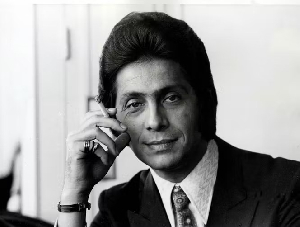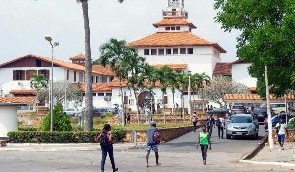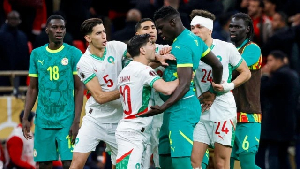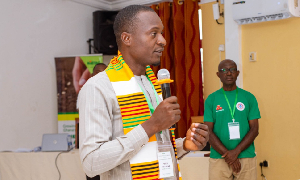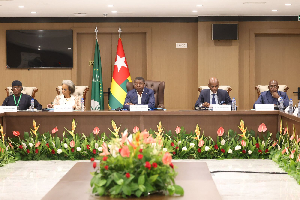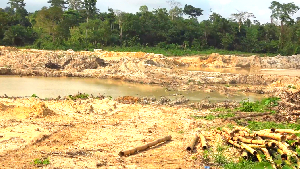The single most important attribute that a think tank thrives on is its credibility. Any think tank worth its image definitely requires credibility to analyse public policy issues independently from the government, political parties and other interest groups.
Think tanks aim to influence both policy makers and the general public by holding seminars, publishing researched works and articles thereby present themselves as credible researchers or experts in particular fields. They admittedly enjoy powerful influence by positioning themselves as neutral arbiters. It is therefore obvious that a think tank that loses its credibility virtually loses its foundation and could easily be tainted by any interest group. What enables a think tank to stand the test of time is its credibility. Credibility of a think tank is even more relevant in a political environment such as the one prevailing in Ghana in which there is always a partisan approach to national issues.
The credibility battle between the Ghana News Agency (GNA) and the Institute of Economic Affairs (IEA) has done much damage to the IEA and opened the door for political parties to read meanings into any subsequent initiative of the Institute.
What made it worse was the speed with which this hitherto credible think tank pulled out the controversial report from its official website. The IEA, as I read from its website (I hope it’s not pulled out), boasts of its reputation for impartiality, independence and professionalism which had ensured that its programmes remained highly regarded and effective. This I personally think is indisputable, especially looking at what it has done in Ghana’s political terrain.
It is therefore a worry to me that this reputable policy think could shy away from a statement it had edited and published on its own website. This single act of organisational dishonesty overshadows all the good deeds of the IEA and widely unlocks the floodgates of accusations and counter-accusations from the two major political parties in this country.
Already, according to a story published on www.myjoyonline.com , the National Youth Organiser of the New Patriotic Party (NPP) Anthony Abayifaa Karbo has questioned the credibility of the Institute of Economic Affairs (IEA) over the document reportedly criticising the opposition NPP for abuse of incumbency when in government.
Expressing his worry over the contradictions on the part of the IEA, he said, “I don’t want to believe that the IEA is trying to give one political party a folder to use against the opposition party. If that is the case then IEA itself would be a walking contradiction.”
He added that the IEA in 2000 indicted the ruling NDC government for incumbency hence must be seen being categorical in their report on the NPP’s conduct in the 2008 elections. On the part of the National Democratic Congress (NDC), the Chief Executive of the Free Zones Board, Kojo Twum Boafo has called on the party’s leadership to boycott the Presidential Debate should the Institute of Economic Affairs (IEA) organise it ahead of the 2012 general elections. He stressed that “the mischievous agenda of the policy think tank to favour one political party against the other has been exposed. The jittery IEA, who know whom they are withholding to, decided to make excuses by pulling the report from their website”.
It should not surprise us that this single act could cause a lot of damage to the institute because Credibility is the bedrock for the performance of policy think tanks worldwide. The onus now lies on IEA to come clean on this subject and put it to rest.
No think tank in any country could please all interest groups or political parties, especially when it comes to political issues. It is therefore instructive for the think tanks operating in this country to standby the outcomes of their researched works no matter how controversial it may be. It is their ability to withstand such controversies and justify their findings that makes them trustworthy and truthful in the long run. The truth, as they say, always stands.
The fact is, I don’t have to become a research expert to know that the NDC in 2000 enjoyed the benefits of incumbency during the general elections and in the same vein the NPP in 2008. The same IEA in 2000 indicted the NDC government for incumbency and maintained its position in that regard as even acknowledged by the NPP’s National Youth Organiser Anthony Abayifaa Karbo. Why the attempts to now pretend that the NPP could not have also used incumbency to its advantage in the 2008 general elections? Even without IEA’s research work, I as an individual would wonder how a ruling government would campaign for a general election with no trace to the incumbency advantage.
However, this occurrence should not be the basis for us to condemn all policy think tanks in this country. In their own respective ways, think tanks in Ghana have played very significant roles in the nation’s socio-economic development. It would therefore be intellectually dishonest for anyone to underrate the impact of policy think tanks in this country.
Frank Agyemang
agyemangfrank@gmail.com
Opinions of Tuesday, 23 August 2011
Columnist: Agyemang, Frank
IEA’s credibility at Stake
Entertainment
